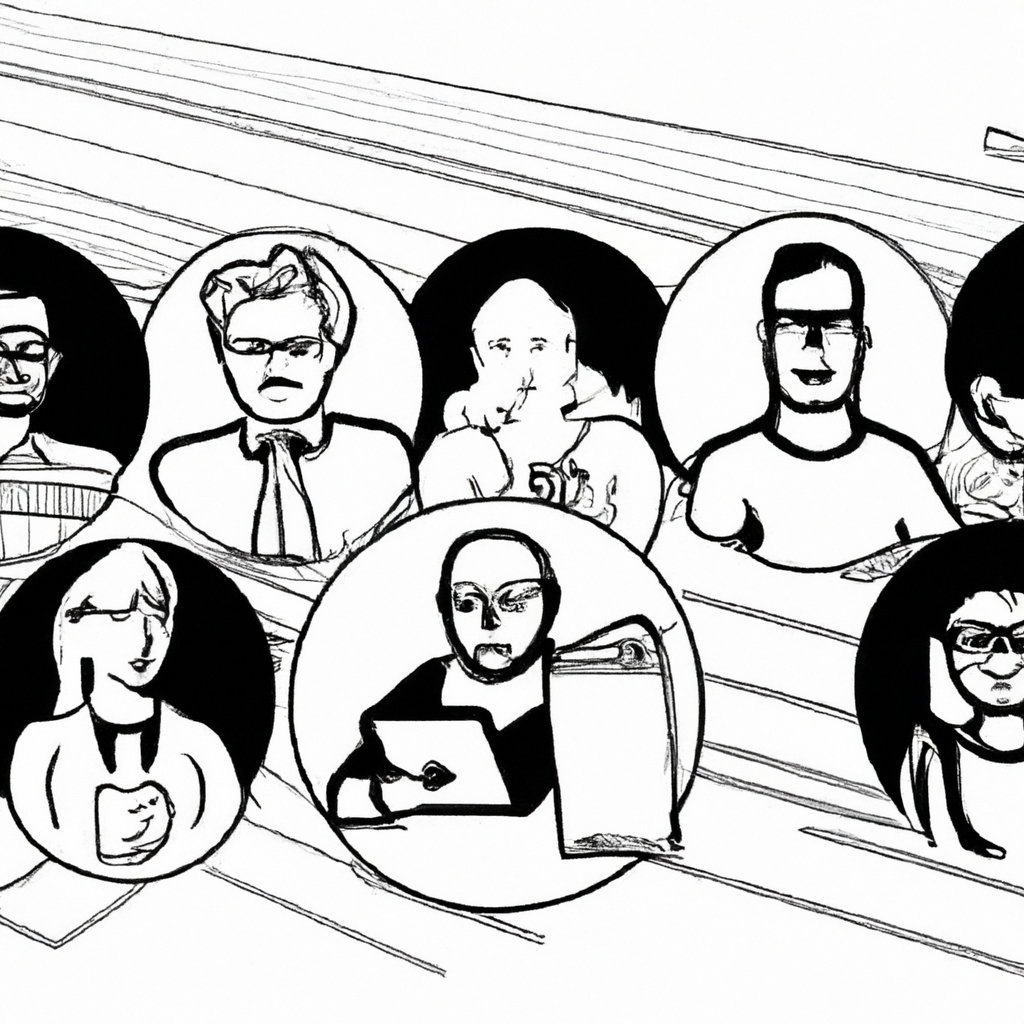Dear Readers,
AI plays a crucial role in our blog, helping us manage our time more effectively to keep the content flowing. While AI assists with content creation, which may lead to occasional spelling or grammar errors, our primary goal remains clear: to deliver meaningful insights to you. For important matters, please consult a specialist.
Thank you for your understanding and support.
Best regards,
Education.com.cy
Summary
Learning to program is an empowering skill that allows individuals to create solutions impacting millions. It opens numerous career opportunities due to the high demand for skilled programmers across various industries. Programming fosters creativity, critical thinking, and problem-solving abilities. Despite its importance, there is a significant educational gap, with many schools not offering coding classes. Companies often provide attractive work environments to retain talented engineers. Programming skills are applicable beyond the tech industry, making them valuable in fields like agriculture, entertainment, and manufacturing. In summary, learning to program is crucial for personal development and addressing the growing demand for skilled programmers.
Introduction
Learning to program is an essential skill in today’s technology-driven world. It equips individuals with the ability to create software and applications while fostering critical thinking and problem-solving abilities. Prominent figures from various industries, including technology, entertainment, and sports, emphasize the transformative power of coding. For instance, Bill Gates highlights that programming teaches you how to think. Similarly, Mark Zuckerberg shares how his journey in programming began with a simple desire to create something fun for his family, which eventually led to the creation of Facebook.
Programming is not just for tech enthusiasts; it has become a fundamental skill across all fields. Whether you aspire to work in agriculture, entertainment, manufacturing, or any other industry, understanding how to code can significantly enhance your capabilities. The ability to break down complex problems and develop solutions is a valuable asset in any profession.
Moreover, the demand for skilled programmers is at an all-time high. Companies are eager to hire talented engineers and often provide exceptional work environments to attract the best talent. Learning to code opens up numerous opportunities, from making a significant impact on society to achieving financial success.
In essence, programming is about more than just writing code; it’s about empowering individuals to bring their ideas to life and make a difference in the world. Whether you want to change the world or simply enjoy the creative process, learning to program is a skill that offers endless possibilities.
Main Sections
Personal Experiences with Programming
Various influential figures share their initial encounters with coding and the impact it had on their lives. Bill Gates emphasizes the importance of learning to program as it teaches critical thinking. Jack Dorsey, the creator of Twitter, recalls receiving a Macintosh at a young age and learning to code in college. Ruchi Sanghvi, the first female engineer at Facebook, started coding in her freshman year of college, creating a Tic-tac-toe program. Drew Houston, who created Dropbox, began with simple programs asking basic questions. Elena Silenok, the founder of Clothia.com, learned to make basic shapes appear on the screen. Gabe Newell, the creator of Valve, was astonished by his first “Hello World” program. Mark Zuckerberg started programming to create something fun for himself and his sisters, learning progressively by adding new elements. Chris Bosh, an NBA All-Star, learned coding in college and believes it can be intimidating but manageable. Makinde Adeagbo, an early Facebook engineer, notes that coding often involves breaking down problems rather than complex algorithms. Vanessa Hurst, who created Girl Develop IT, stresses determination over genius in learning to code. Tony Hsieh, the CEO of Zappos, mentions the importance of knowing basic math. Bronwen Grimes, a technical artist at Valve, compares coding to reading, emphasizing its ubiquity across various fields. Will.I.Am, who is now taking coding classes, shares his experience of being in an after-school group and the importance of learning to code despite societal perceptions. Hadi Partovi, the creator of Code.Org, highlights the empowering nature of programming and its potential to change the world, emphasizing the human aspect of software development.

Benefits of Learning to Code
Learning to code offers numerous benefits. Firstly, coding is an empowering skill that enables individuals to create and innovate, turning ideas into tangible products that can reach millions of people. It fosters problem-solving abilities by teaching how to break down complex problems into manageable parts. Additionally, coding is not just for tech enthusiasts; it has applications across various fields such as agriculture, entertainment, and manufacturing, making it a versatile skill.
Moreover, coding can be a gateway to numerous high-paying job opportunities, as there is a significant demand for skilled programmers. It also promotes creativity and critical thinking, similar to learning an instrument or playing a sport. The process of learning to code can be intimidating at first, but with determination and practice, it becomes more manageable over time.
Furthermore, coding is about more than just writing complex algorithms; it involves understanding and applying basic mathematical concepts like addition, subtraction, and multiplication. It is accessible to anyone willing to learn, regardless of their background or intelligence level. The ability to code can also provide a sense of accomplishment and astonishment, as one sees their creations come to life on the screen.

Find out how the strategies discussed in the article
"How Teaching a Song Can Improve Your Child’s Learning and Well-Being"can help address internet addiction in children and teens.
Coding in Different Fields
Learning to program is essential across various fields due to its transformative impact on numerous industries. In agriculture, entertainment, and manufacturing, software has revolutionized traditional practices, making processes more efficient and innovative. For instance, in agriculture, programming can optimize crop management and automate machinery. In entertainment, coding enables the creation of sophisticated visual effects and interactive experiences. Manufacturing benefits from programming through automation and precision in production lines.
Moreover, the ability to code is not limited to tech-centric careers. Even aspiring race car drivers, baseball players, or house builders can benefit from programming skills. The ubiquity of computers means that understanding how to code can enhance performance and innovation in virtually any profession.
The importance of learning to program also extends to personal empowerment and societal impact. Programming allows individuals to create solutions that can reach millions, fostering a sense of accomplishment and influence. It is a skill that can lead to lucrative job opportunities, as there is a high demand for talented engineers. Companies often go to great lengths to attract and retain skilled programmers by offering perks like free meals, laundry services, and creative work environments.

Encouragement and Accessibility
Learning to program is highly encouraged and accessible to everyone, regardless of their background or career aspirations. Prominent figures in technology and other fields emphasize that programming is not just for geniuses; it’s a skill that can be learned with determination. Coding is compared to learning to read or playing an instrument—initially intimidating but manageable over time.
Programming is portrayed as an empowering skill that can significantly impact one’s ability to solve problems and create innovative solutions. It is highlighted as a tool for both personal and professional growth, enabling individuals to bring their ideas to life and potentially reach millions of people.
The importance of learning to program is underscored by the fact that many high-paying jobs in America remain unfilled due to a lack of coding skills. This gap presents a significant opportunity for those who learn to code. Additionally, programming is seen as a way to contribute to various fields, from agriculture to entertainment, as software increasingly influences all aspects of life.

Work Environment for Programmers
The work environment for programmers is designed to be as appealing and supportive as possible to attract top talent. This includes offering amenities such as a fantastic chef providing free food for breakfast, lunch, and dinner, free laundry services, snacks, and recreational activities like video games and scooters. The office also features various interesting spaces where employees can play, relax, think, play music, or be creative.
The importance of learning to program is emphasized by its empowering nature, enabling individuals to create and innovate. Programming is portrayed as a skill that can help change the world and is accessible to anyone determined to learn. It is not just about mastering complex algorithms but about breaking down problems and finding solutions. The ability to code is likened to having a superpower, offering opportunities in various fields such as agriculture, entertainment, and manufacturing.

Future of Programming
The future of programming emphasizes the critical importance of learning to program. It is highlighted that computer programming is an incredibly empowering skill, whether one’s goal is to make a lot of money or to change the world. The ability to create software is seen as a superpower, giving individuals the capability to bring ideas to life and impact millions of people.
Learning to program is not just about mastering complex algorithms but about breaking down problems and finding solutions. It is a skill that can be learned by anyone with determination, not just geniuses. The process of learning to code is compared to learning to play an instrument or a sport; it may start off intimidating, but it becomes manageable over time.
The narrative also underscores the broad applicability of coding skills across various fields, from agriculture to entertainment to manufacturing. As technology becomes increasingly integral to all aspects of life, the ability to understand and create software becomes more valuable.
Moreover, the text stresses the current shortage of skilled programmers and the efforts made by companies to attract talented engineers by creating appealing work environments. This shortage indicates a significant opportunity for those who learn to code, as there are many high-quality jobs available that remain unfilled due to the lack of qualified candidates.

Conclusion
Learning to program is crucial because it teaches problem-solving skills, fosters creativity, and opens up numerous career opportunities. It is not only about mastering computer science but also about empowering individuals to create and innovate in various fields. Programming skills are increasingly essential in a technology-driven world, and they can significantly enhance one’s ability to contribute to and shape the future. Educators and parents should encourage coding education to bridge the current educational gap and prepare students for the future. By learning to code, individuals can unlock their potential and make a meaningful impact on society.

Thank you for reading our article on The Importance of Learning to Program. We highly value your feedback and invite you to take a brief survey to share your thoughts and experiences. Your responses will be kept confidential.
Dear Readers,
Welcome to my blog, where technology, music, and visual arts come together to spark creativity and growth. By subscribing, you’ll become part of a vibrant community committed to exploring and learning in these areas.
Select the type of engagement that suits you best:
Join us and enjoy tailored content and direct support suited to your interests.
